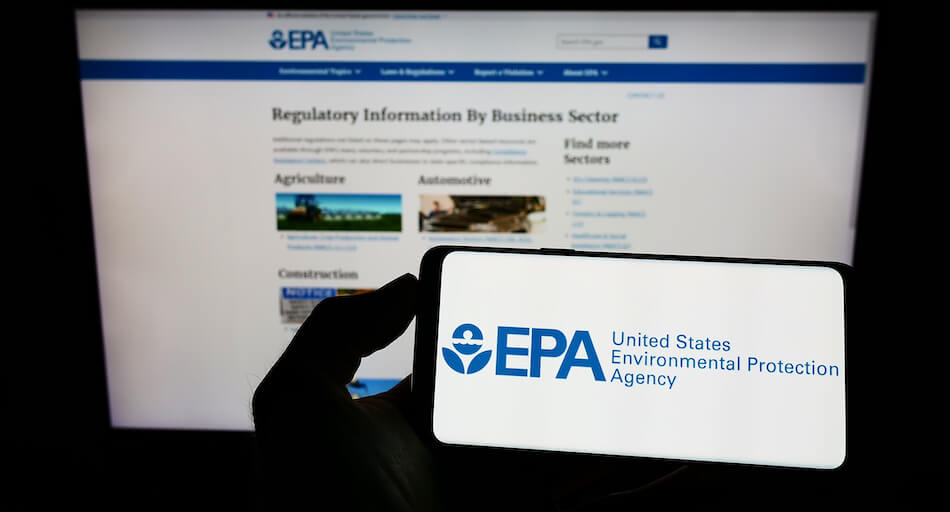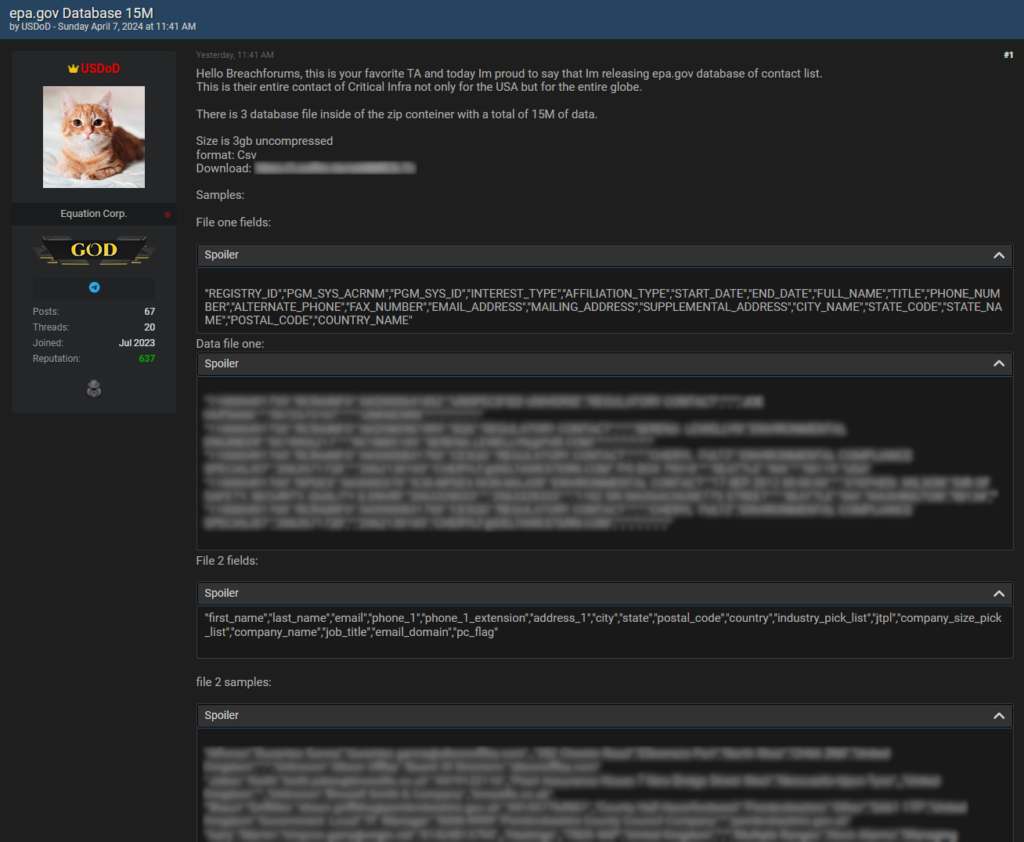
A threat actor operating under the alias “USDoD” has claimed to have released a massive database from the United States Environmental Protection Agency (EPA), compromising sensitive contact information related to critical infrastructure worldwide.
The disclosure, made yesterday on April 7, 2024, alleges that the database contains over 15 million records, amounting to 3GB of uncompressed data.
The EPA, a federal agency tasked with protecting human health and the environment, plays a critical role in regulating and ensuring the safety of air, water, and land within the United States. The agency's operations extend globally, collaborating with other countries to address environmental issues that transcend national borders.
The potential exposure of its database could have far-reaching implications, not just for the integrity and security of critical infrastructures in the USA but possibly affecting global environmental safety measures and protocols.
The hacker's post on Breach forums provided detailed information about the nature of the data compromised. The leaked files are in CSV format, containing registry IDs, full names, titles, phone numbers, fax numbers, job titles, email addresses, and mailing addresses, regulatory and environmental contacts across various jurisdictions and personal contact information.

Sample entries from the disclosed files illustrate the depth and breadth of the information claimed to have been stolen, ranging from environmental engineers and compliance specialists to directors and managing directors across various industries and regions, primarily in the United Kingdom.
The diversity of the data sets suggests that the impact of this breach could span multiple sectors and geographical areas, affecting individuals and organizations alike.
However, the claims made by “USDoD” regarding the EPA database release have yet to be independently verified. While the information presented in the hacker forum post is detailed and specific, the authenticity of the data and the extent of the breach remain uncertain. It's also unclear how the alleged hacker gained access to such a comprehensive trove of sensitive information or the motives behind disclosing this data.
As the cybersecurity community and relevant authorities work to assess the credibility of these claims and the potential ramifications of such a breach, individuals and organizations must remain vigilant. This incident serves as a reminder of the ever-present threat of cyber-attacks and the importance of robust security measures to protect sensitive information.
In light of this development, the general public and organizations should be cautious about unsolicited communications and potential phishing attempts using the exposed information. Strengthening passwords, enabling multi-factor authentication, and being aware of unusual emails or calls can help safeguard against identity theft and fraud.







Leave a Reply